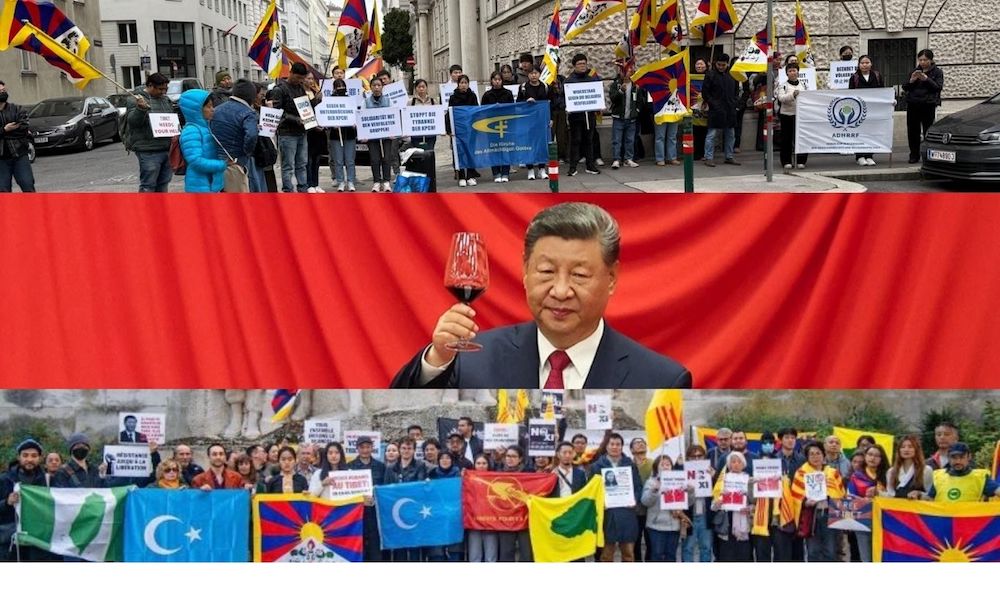by Tsewang Namgyal
“It is not from the benevolence of the butcher, the brewer or the baker, that we expect our dinner, but from their regard to their own self interest. We address ourselves, not to their humanity but to their self-love, and never talk to them of our own necessities but of their advantages.” Adam Smith
We Tibetans often demonize or at the very least remain indifferent to the potential of private sector business in empowering our community. This prevents us from leveraging market forces to economically empower Tibetans. Unfortunately, our current candidates focus has been more on political issues rather than balancing it with steps to address the dire economic challenges faced by Tibetans in Tibet.
The Chinese government’s fatal flaw is its view of His Holiness the Dalai Lama as the source of the “Tibetan problem” rather than a possible nonviolent solution to the problem. I believe our fatal flaw is failing to leverage the power of business.
Our current attitude has made in our eyes organizations like Holiday Inn, BP, Bombardier and the World Bank as objects of protest rather than opportunities to engage and shrewdly use to our advantage. Similarly, we Tibetans from outside have imposed policies that are less driven by the needs of our entrepreneurs (or guidance by our successful business friends) but by the good motivations of our non-profits.
There is no doubt that business can be abused. However, I believe the way to mitigate such risks is by finding ways to slowly strengthen Tibet’s business legal and regulatory system. I appreciate the political challenges but strengthening of the business system is an easier endeavor and easier to sell to the Chinese government. Most importantly we need to invest more in our human capital (education and training) and provide the right conditions. We should not wait for a future ideal solution. Any future political settlement will likely bring its share of challenges.
In 1992, when I first immigrated to the United States from Dharamsala, I had more than my fair share of prejudices. There is no doubt in my mind that a compassionate motivation is key for inner peace. However, we know that focusing on compassion to the exclusion of other things can politically weaken a society. Tibet is one such example. Results have also shown that private sector development has greatly increased material wealth, although at a huge environmental cost. China is one such example of this phenomenon.
Today as we consider our strategies on how to respond to the dizzying pace of new business development and investments in Tibet, it is in our best interest to see how we can use them—not just let them use us. It is also in our interest to learn from such corporations how to make TGIE and our other organizations more efficient and productive. Like business entities, we must identify areas of waste such as unnecessary meetings, over processing, poor planning, inability to match skills and work duties effectively, and failure to unlock synergies among our different organizations.
Rather than our old ways of running things, at this moment we must think more in engaging with businesses and strategize as to how they can become a part of the solution to empower Tibetans. This is not possible through only demonizing corporate interests or appealing to their inner goodness; the best way is appealing to their self-interest and find mutually beneficial opportunities.
I share this thought not out of criticism of our (my) past efforts, but as a call to change our attitude. Like most Tibetans, I deeply love and care for our community. There is no doubt we must still demonstrate against bad projects but we need a much more balanced attitude towards investments in Tibet.
My fear is that the continual waste of talent in our next generation of Tibetans, due to unemployment or lack of impetus to compete in the marketplace (possibly due to subsidies or handouts), will render our other efforts nearly meaningless. A future sustainable Tibetan economy is only possible if it is led by our entrepreneurs. Without a sound economy, Tibet will never truly be free. It is critical we request our Kalon Tripa and Chitue candidates their plans to economically empower our community.
Tsewang Namgyal serves on the Board of Tibet Fund.
[OPINION-DISCLAIMER]









